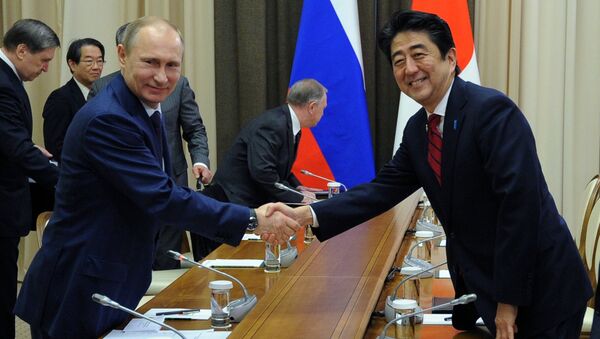Abe's visit to Sochi shows "how committed Japan is to advancing its national interests," political scientist Fyodor Lukyanov wrote for Rossiyskaya Gazeta. This is not a courtesy visit for the Japanese prime minister, he added. Abe "is convinced that Tokyo's relations with Moscow are critically important in the long term."
The Vzglyad business newspaper shared the sentiment, saying that Abe did not add Sochi to his European tour to discuss Russia's relations with the West.
"Abe wants to foster Japan's ties with Russia. It's no coincidence that he was the only leader of a G7 member state who was present at the opening ceremony of the 2014 Winter Olympics in Sochi," the media outlet noted.
In fact, this policy has long been doomed. "This is yet another indication that Obama's policy of isolation has failed," Alexey Pushkov, chairman of the State Duma's Foreign Affairs Committee, told Bloomberg. "It's an important visit that shows that Japan has decided not to put all its eggs in one basket."
Washington has not been happy with Abe's decision to come to Sochi. In February, US President Barack Obama asked the Japanese prime minister to postpone his visit until after the Group of Seven summit that will be held in Japan's Ise-Shima region on May 26-27.
The visit, Moscow hopes, will help to "create a constructive atmosphere in bilateral relations," Kremlin spokesman Dmitry Peskov said on Wednesday, but added that no immediate solution would likely be reached.



